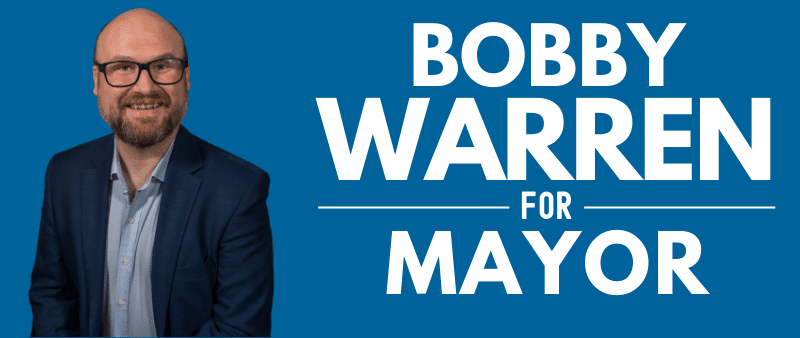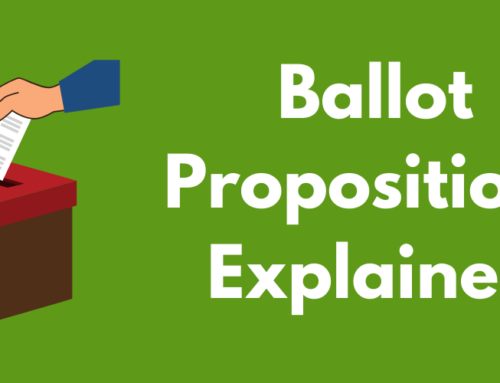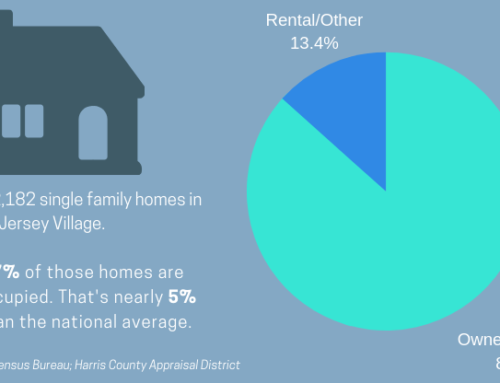Every spring, as flowerbeds throughout our fair city begin to bloom, lawns begins to green up, and trees regain the fullness that signals the coming heat of summer, we see another common plant spring up throughout Jersey Village: the campaign yard sign. (psst… click here to get your Bobby Warren for Mayor yard sign!)
Doubtless you have noticed a bumper crop of these signs this year. We have seven candidates running for three open seats, which is the most crowded ballot in Jersey Village since 2016. Much like that year, we also have seven different propositions on the ballot for voters to consider. Just remember to turn that ballot over and fill out the other side before you place it in the ballot box.
Along with such a busy campaign season, we’re also beginning to hear the narrative of anyone seeking to get their name out there and make the case for why they are the champion of the people: They will cut excessive and wasteful spending! They will ensure that only those projects which citizens approve of will be pursued!
Which Project is Excessive?
That sounds great, but what does it all mean in terms of the project you have been waiting for Jersey Village to pursue for years? The City of Jersey Village adopts a new Capital Improvement Plan every year when it approves the budget for the upcoming fiscal year. Let’s take a look at the current 10-year Capital Improvement Plan for the general fund.

Click on the image to view a larger version. For the best reading experience, use a tablet or computer.
Admittedly, there’s a lot of to take in there. The key figures to look at are those starting with Year 1 into Year 10. The columns on the far left side are intended to represent historical data regarding recently completed fiscal years or the current year budget at the time the capital improvement plan is being considered. For a point of reference, we are currently in fiscal year 2020-2021, which is “Year 1” in this plan. In addition, some major projects may be on the plan despite the fact they are more than 10 years out. Those are represented by the next to last column. If you’re checking on the totals at the bottom, that is why you might see a very large figure for that column.
Another point to keep in mind is that capital expenditures planed for a given year can often be pushed to future years if the city ultimately doesn’t have the capacity to get to it while handling all of the other projects currently underway. Finally, (and this is often a confusing point that still sometimes trips me up) the concept of fund accounting cannot be overlooked when we talk about capital expenditures. The primary fund from which the city receives income and expends funds to meet the city’s needs is called the General Fund. We have many different funds, such as our Utility Fund (which operates our water and sewer systems), our Golf Course Fund, and a Capital Improvement Fund. Many of the larger projects, especially those funded over multiple years, may see funds transferred from the General Fund to the Capital Improvement Fund, even if the project won’t start until a future year. It’s a helpful accounting tool to allow our city council to save up for projects through multiple budgets without taking a very large hit to our General Fund balance all in one year.
Many of the projects you see in the Capital Improvement Plan will be funded out of the Capital Improvement Fund with funds budgeted in prior years. This is important to note because despite some fairly large projects slated for the next couple of years, our independent auditor reported that the city is in a very strong financial condition with six months worth of reserve funds in our General Fund. Those funds are above and beyond money earmarked for various capital projects in our Capital Improvement Fund.
It’s Time to Get Down to Specifics
Everyone loves to hear from a candidate who is going to reign in spending, lower taxes and slash wasteful spending. The real question is, does your concept of wasteful spending match that of the candidate promising all of those cuts? It’s quite possible that something you have been looking forward to seeing the city build for a number of years now may be precisely what that candidate would love to see cut from the budget.
As you’re making a choice in this year’s city elections as to who will represent you on council for at least the next two years, make sure you ask the candidates who are promising to cut wasteful spending to identify those projects or those expenditures which they deem “wasteful.” What would they do differently? Will their actions actually save money or cost the city more money in the long run?
On the other hand, I think it’s also important that candidates who are proposing to pursue certain projects explain to citizens why they believe the project is important to our community and how it provides good value to our city. After sitting through hundreds of hours of budget meetings, I’m ready to sit down with any citizen who wants to better understand the value brought by any item in our current Capital Improvement Plan.
Slogans and talking points are easy. Knowing the details on how to move this city forward in a fiscally responsible way is a much more daunting task.






